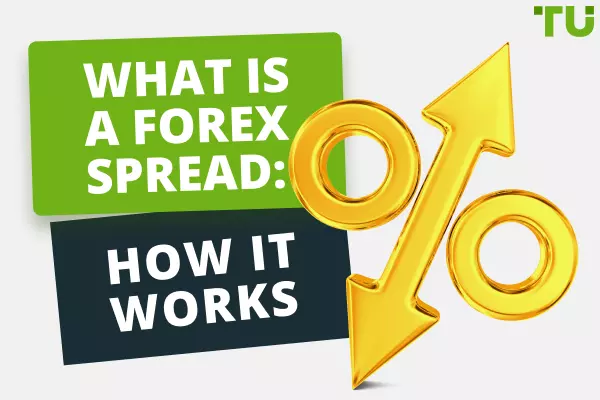Best brokers that offers stock CFDs
| Broker |
Leverage |
Spread |
Best For |
Trading Platforms |
RoboForex |
Up to 1:20 |
From 0 pips |
- Wide range of CFDs
- Advanced features for trading
- ETFs, stocks, indices, currencies, more
|
MetaTrader 4, MetaTrader 5, cTrader, R Trader |
Exness |
Up to 1:2000 |
From 0.1 pips |
- Low fees
- Wide range of assets
- Beginner-friendly
- Social trading
|
MetaTrader 4, MetaTrader 5, WebTrader, Exness Trader |
FxPro |
Up to 1:500 |
From 0.6 pips |
- Professional traders
- Multiple asset classes
- Advanced tools
|
MetaTrader 4, MetaTrader 5, cTrader, FxPro Edge |
Tickmill |
Up to 1:500 |
From 0.0 pips |
- Competitive pricing
- Advanced traders
- Forex and indices
|
MetaTrader 4, MetaTrader 5, WebTrader, Tickmill Trader |
Admirals |
Up to 1:500 |
From 0.8 pips |
- Premium analytics
- Wide range of tradable symbols
- Heat protection tools
|
MetaTrader 4, MetaTrader 5, WebTrader, Supreme Edition |
eToro |
Up to 1:30 (EU) |
From 0.75 pips |
- Social trading
- Beginner-friendly
- Stocks, ETFs, cryptocurrencies
|
eToro Platform, eToroX Exchange, CopyTrader |
IC Markets |
Up to 1:500 |
From 0.0 pips |
- Low forex fees
- Advanced traders
- Wide range of experience
|
MetaTrader 4, MetaTrader 5, cTrader, WebTrader, IC Markets Platform |
AvaTrade |
Up to 1:400 |
From 0.9 pips |
- Easy account opening
- Great research tools
- Negative balance protection
|
MetaTrader 4, MetaTrader 5, AvaTradeGO, WebTrader |
InstaForex |
Up to 1:10 |
From 3 pips |
- Interest accrual on account balance
- Wide currency pair selection
|
MetaTrader 4, MetaTrader 5, WebTrader, InstaTick Trader |
Interactive Brokers |
Up to 1:50 (EU) |
From 0.1 pips |
- Low commissions
- Advanced platforms
- Wide selection of tradable securities
|
Trader Workstation (TWS), IBKR Mobile, Client Portal, WebTrader, API access |
RoboForex
RoboForex provides an extensive selection of over 12,000 stock CFDs from different countries, allowing traders to access popular stocks like Apple and Amazon. Trading fees include a commission of 0.009 USD per share, with spreads starting from 0.01 USD. Overnight fees may apply based on leverage and assets. Traders can utilize platforms like MetaTrader 4 and 5, along with R WebTrader and R MobileTrader for convenient trading. Leverage of up to 1:20 is available, and various deposit methods are offered, including cards, bank transfers, and e-wallets. Beginners can utilize a demo account for practice, while educational resources such as webinars and tutorials are available to enhance trading knowledge.
| Pros |
Cons |
RoboForex offers different account types, catering to various trading preferences and experience levels |
RoboForex is not available for traders located in the US or Japan |
Orders are executed swiftly on the RoboForex platform, ensuring efficient and timely trading execution |
|
RoboForex provides access to a range of free research tools, educational programs, and videos, aiding traders in making informed decisions |
|
With a minimum deposit requirement of just $10, RoboForex offers accessibility to traders with varying capital levels |
|
Exness
Exness offers a wide range of popular stocks from diverse industries, such as technology, finance, and consumer staples, totaling over 100 options. The broker imposes zero commissions on Standard, Raw Spread, and Pro accounts, making trading cost-effective. Spreads are variable, with starting rates as low as 0.1 pips on major stocks, though exact figures may vary by asset. Overnight swaps apply for positions held after market close, influenced by individual asset rates and prevailing interest environments. Traders access industry-standard MetaTrader 4 & 5 platforms, renowned for advanced charting and automated trading tools. The Exness Trade App provides convenient mobile trading, enabling order placement and position management on-the-go. Leverage of up to 1:2000 is available, amplifying both profits and losses. Additional features include demo accounts for practice, price gap protection for select assets, and multilingual support accessible 24/5 via live chat, email, and phone.
| Pros |
Cons |
Competitive Fees: Zero commissions and tight spreads |
Limited Asset Selection: Compared to some competitors |
Wide Asset Selection: Over 100 popular stocks available |
|
Multiple Trading Platforms: MetaTrader 4 & 5 and Exness Trade app |
|
Useful Features: Demo account, price gap protection, multilingual support |
|
FxPro
FxPro offers comprehensive stock CFD trading with a vast selection of over 1,700 stocks from global exchanges, spanning major US markets like NYSE and Nasdaq, European markets such as LSE and Euronext, and Asian markets like HKEX and TSE. These stocks cover diverse industries like technology, finance, consumer goods, and healthcare. The platform charges zero commissions on trades, with competitive spreads starting from 0.1 pips on major stocks. Various trading platforms are available, including industry-standard MT4 & MT5, user-friendly cTrader, and web-based FxPro Edge. Leverage of up to 1:20 is offered, enabling traders to control larger positions with less capital. Additional features include demo accounts for practice, advanced order types, and 24/5 multilingual support for assistance in preferred languages via phone, email, or live chat.
| Pros |
Cons |
Wide Asset Selection: Over 1,700 stocks from global markets |
Limited Non-Trading Features: Lacks some features offered by other brokers |
Competitive Fees: Zero commissions, competitive spreads |
High Leverage Risk: Leverage can amplify losses |
Advanced Features: High leverage, demo account, advanced order types |
No Negative Balance Protection: Losses can exceed deposits |
Regulation: Regulated by CySEC and FCA |
Tickmill
Tickmill provides CFD trading on a range of stocks, offering over 100 popular options across diverse sectors like technology, finance, consumer staples, and healthcare. While not the largest selection, Tickmill focuses on renowned and established companies, appealing to traders seeking familiar names. The platform boasts competitive spreads starting from 0.0 pips for major stocks, with zero commission fees on all accounts. Trading is facilitated through MetaTrader 5 (MT5), offering advanced charting tools, technical indicators, and automated trading capabilities. Additional features include leverage up to 1:20, dividend payments based on stock holdings, fast execution averaging 0.20 seconds, and 24/5 multilingual support via phone, email, or live chat.
| Pros |
Cons |
Competitive Fees: Tight spreads, zero commission fees |
Limited Asset Selection: Smaller range, especially for non-major stocks |
Fast Execution: Average speed of 0.20 seconds |
No Negative Balance Protection: Losses can exceed deposits |
User-Friendly Platform: MT5 known for ease of use |
Limited Educational Resources: Fewer resources compared to competitors |
Regulation: Regulated by FCA and FSA |
|
Admirals
Admirals provides a robust platform for CFD trading, offering over 8,000 stocks across global exchanges, including major US, European, and Asian markets, as well as emerging markets. They offer two account types: Invest, with no commission fees but wider spreads, and Trade, with lower spreads but commission fees. Trading platforms include MetaTrader 4 & 5, along with the exclusive MetaTrader Supreme Edition for additional features. Admirals Invest offers a user-friendly web platform for commission-free stock investing. Additional features include leverage up to 1:500 for retail clients and 1:20 for professional clients, negative balance protection, dividend payments, educational resources, and multilingual support. Regulated by FCA and CySEC, Admirals ensures security and oversight. Minimum deposits vary, and various account types, including Islamic accounts, cater to diverse investor needs.
| Pros |
Cons |
Regulation: Admirals is regulated in multiple Tier-1 and Tier-2 jurisdictions, ensuring transparency and investor protection |
Maximum Contract Size: Limited to 100 lots on MT5 Trade account |
Advanced MetaTrader Features: Includes StereoTrader dashboard and Supreme indicators |
Social Trading Feature: Falls behind competitors like eToro and ZuluTrade |
Premium Analytics: Offers Dow Jones News, sentiment analysis by Acuity Trading, and Trading Central signals |
|
eToro
eToro provides a user-friendly platform for stock CFD trading, offering over 2,000 stocks from global markets like the US, Europe, and Asia. With zero commission fees, trading is cost-effective, though spreads can be wider compared to some rivals. Their proprietary web-based platform offers basic charting tools and order types but lacks advanced features like automated trading found on MetaTrader. Notably, eToro excels in social trading, enabling users to copy successful investors' trades. Additionally, they offer fractional shares, allowing investment in expensive stocks with smaller amounts. Leverage of up to 1:20, 24/7 multilingual support, regulatory compliance, and a low minimum deposit of $10 cater to both beginners and experienced traders.
| Pros |
Cons |
Free Stock and ETF Trading: Commission-free trading |
Withdrawal Fees: $5 withdrawal fee |
Social Trading: Copy trading feature available |
USD Base Currency: Limited to USD |
Wide Range of Assets: Over 1,000 CFDs with competitive spreads |
Customer Support: Improvement needed |
Top-Tier Regulation: Regulated in multiple jurisdictions |
Algorithmic Trading Limitations: No support for automated strategies |
Negative Balance Protection: Provided for clients |
Mandatory Stop-Loss and Take-Profit may hinder certain strategies |
IC Markets
IC Markets, a renowned online broker, offers CFD trading on a wide array of assets, including over 2,100 stock CFDs from major global markets. With competitive spreads starting from 0.0 pips and no commission fees on most accounts, it ensures cost-effective trading. The platform provides various trading platforms like MetaTrader 4 & 5 and cTrader, catering to different preferences. Additional features include leverage up to 1:500, demo accounts for practice, negative balance protection, and 24/5 multilingual support. Regulated by authorities like ASIC and FCA, IC Markets ensures security and oversight, with minimum deposits varying based on account type and region.
| Pros |
Cons |
Low Forex Fees: Competitive forex fees |
Limited Product Selection: Doesn't offer stocks, ETFs, or funds |
Fast Account Opening: Quick and easy setup |
|
Wide Range of Experience: Years of experience, compliant with MiFID regulations |
Slow Live Chat Support: Live chat may lack responsiveness |
Educational Resources: Basic educational materials provided |
Investor Protection for Non-EU Clients: Non-EU clients lack EU-level protection |
Stock CFD Range: Impressive range of stock CFDs |
|
AvaTrade
AvaTrade, an online broker, offers CFD trading on a range of assets, including over 1,500 stock CFDs from global markets like the US, Europe, and Asia. With competitive spreads starting from 0.0 pips and no commission fees, trading is cost-effective. The platform provides MetaTrader 4 & 5, renowned for advanced charting tools and automated trading capabilities, along with AvaTradeGo, a mobile platform for beginners. Additional features include leverage up to 1:20, demo accounts for practice, and 24/5 multilingual support. Regulated by authorities like the Central Bank of Ireland (CBI) and the Financial Conduct Authority (FCA), AvaTrade ensures security and oversight, with minimum deposits varying based on account type and region.
| Pros |
Cons |
Easy and Fast Account Opening: Quick and straightforward process |
Limited Product Portfolio: Only offers Forex, various CFDs, and cryptocurrencies |
Free Deposit and Withdrawal Options: Various free methods available |
High Inactivity Fees: Charges $50 per quarter after 3 months of inactivity |
Negative Balance Protection: Ensures protection against negative balances |
Average CFD Fees: While Forex fees are low, CFD trading fees are average |
Multiple Top-Tier Regulations: Regulated in several jurisdictions |
|
InstaForex
InstaForex, an online broker, offers CFD trading on a vast array of assets, including over 6,000 stock CFDs from global markets such as the US, Europe, and Asia. With variable fee structures depending on the account type, spreads can start from 0 pips with commission fees for some accounts, making fees competitive. The platform provides MetaTrader 4 & 5, industry-standard platforms with various plugins and add-ons, along with InstaForex WebTrader for beginners. Additional features include high leverage up to 1:10, social trading options through PAMM and Copy Trading systems, demo accounts for practice, and 24/7 multilingual support.
| Pros |
Cons |
Interest Accrues on Account Balance: Benefit from interest on balances |
Market Diversity Is Low: Limited diversity in non-currency markets |
Low CFD Commissions on Stocks: Enjoy low commissions for stock CFDs |
|
Wide Currency Pair Selection: Large variety of currency pairs available |
|
Islamic Accounts Supported: Islamic accounts cater to specific needs |
|
Multi-Language Support: Accessible in multiple languages for diverse users |
|
Interactive Brokers
Interactive Brokers (IBKR) is a leading online broker renowned for its extensive asset selection and advanced trading platform. While IBKR does not offer CFDs on individual stocks in major regions like the US and EU, it provides access to a diverse range of assets. Traders can explore over 135 global exchanges for individual stocks and trade options on listed stocks, offering flexibility and risk management alternatives. IBKR boasts competitive fees, with low commissions starting from $0.005 per share for US stocks and a tiered commission structure based on trading volume. Their proprietary platform, Trader Workstation (TWS), offers advanced functionality but requires a learning curve. With high leverage options, margin trading, and multilingual support, IBKR caters to traders' diverse needs.
| Pros |
Cons |
Low Commissions and Pricing |
High Minimum for Earning Interest on Uninvested Cash |
Advanced Trading Platforms |
Platform and Execution Issues |
Wide Selection of Tradable Securities |
|
Global Market Access |
|
Fractional Shares Trading |
|
Strong Interest Rates on Cash Balances |
|





















